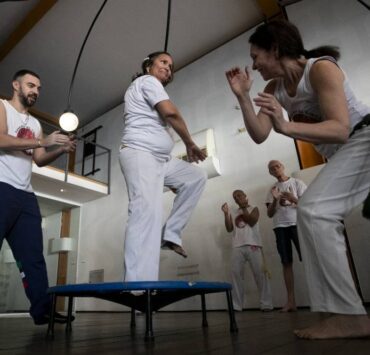Letting contemplation guide our actions

July 20, 2025 – 16th Sunday in Ordinary Time
Readings: Genesis 18: 1-10a; Psalm 15, R. He who does justice will live in the presence of the Lord.; Colossians 1: 24-28; Gospel – Luke 10: 38-42
One of our inspirations in living our Christian mission in the day-to-day is the Lord’s practice of prayer and action.
We often see him spending a long day of ministry, tirelessly preaching, healing, and exorcising people, and at the end of the day or early the following morning, he would go off into solitude to pray.
What the Lord has integrated into a daily life of prayer and action, we see seemingly dichotomized in this Sunday’s Gospel.
Let us reflect further on the action element in Martha. Then let us look at the contemplative side in Mary. We then return to the integration of the two as our final reflection.
“Martha, burdened with much serving, came to him and said, ‘Lord, do you not care that my sister has left me by myself to do the serving? Tell her to help me.’ The Lord said to her in reply, ‘Martha, Martha, you are anxious and worried about many things.’” (cf. Luke 10: 38-42)
Martha was busy serving, but the busy-ness brought her worry and anxiety. This is what we are being “warned” about. Action, service are all good. St. Ignatius of Loyola, in fact, said that “love is best expressed in deeds.”
One of the Ignatian graces and ideals is to love and to serve God and others in all things—in omnibus amare, in omnibus servire.
The Lord’s reminder was to help Martha regain perspective and equilibrium. This is also a good reminder for all of us.
It is an invitation to equanimity so as not to let our anxieties and worries make us lose perspective and be disconnected from the purpose and sense of meaning and mission in all that we do.
“There is need of only one thing. Mary has chosen the better part and it will not be taken from her.”
Then Mary’s side of contemplation, Mary “who sat beside the Lord at his feet listening to him speak.” And as the Lord said, “Mary has chosen the better part.”
Why is it the better part? Is the Lord saying the two—contemplation and action—are “at odds” with each other?
I think the reflection point is “the better part.” The action and the work are all good, but the contemplation as “the better part” is because this is what roots and ground us in the Lord.
All our actions and deeds must flow from this contemplation because living out our Christian mission is always a sharing in the mission of the Lord.
The quality of our action and work is also determined by our contemplation, the centrality of Jesus in our life. The more centered we are on the Lord, the more Christ-like our service becomes.
And a key virtue or grace in being Christ-like is how closely we imitate his loving obedience to the Father’s will.
This was the fruit of his prayer and contemplation, constantly checking with the Father if all he did was according to the Father’s plan and will. Loving obedience is a central grace in the life and mission of the Lord, and so too with us.
We now reflect on the synthesis of contemplation and action in Jesus. Here I want to refer to Mark 1:29-39, where we saw Jesus as a man of service, a man of prayer, and a man on a mission.
Instead of resting for the night, Jesus ended up healing and exorcising people brought to him at the house of Peter. Then early the following morning, he left for a deserted place to pray in solitude.
When his disciples found him, they asked him to return to Peter’s house because people were looking for him and wanted more.
But his response was, “Let us go somewhere else—to the nearby villages—so I can preach there also. That is why I have come.”
The clarity of mission. The success of his ministry, the popularity of his work did not distract him from the focus on mission, which we can surmise was greatly helped by solitude and prayer.
Being a contemplative-in-action is one way to follow Jesus more nearly and, paraphrasing St. John the Baptist, allow ourselves to decrease so that Jesus may increase in us.





















